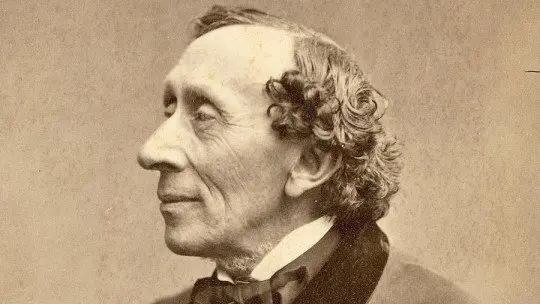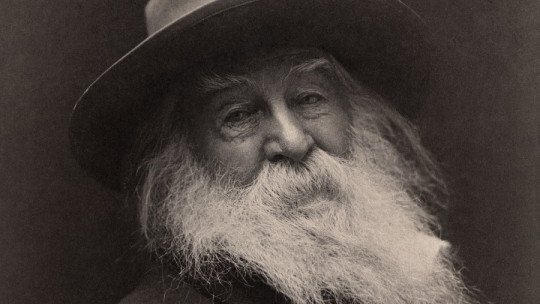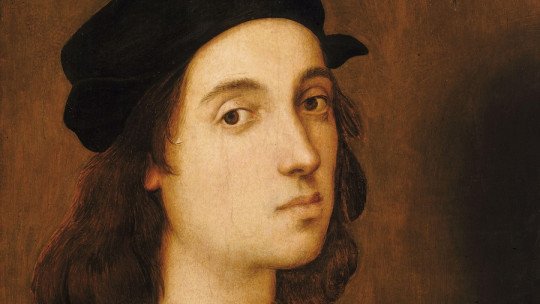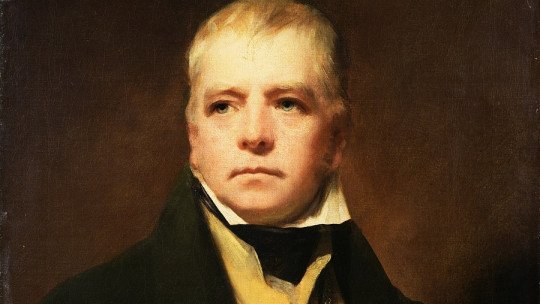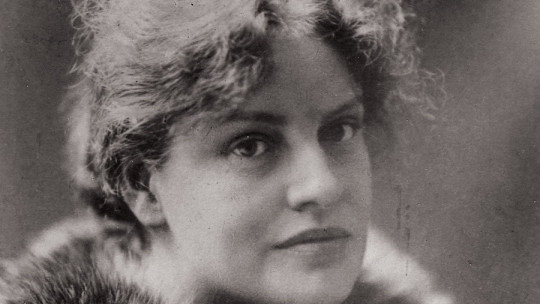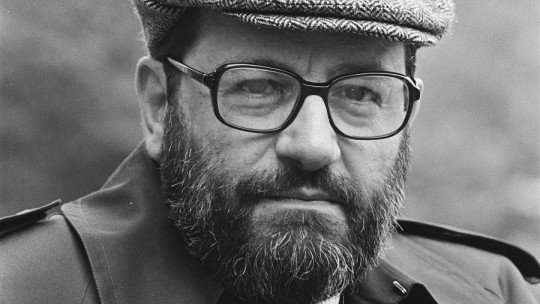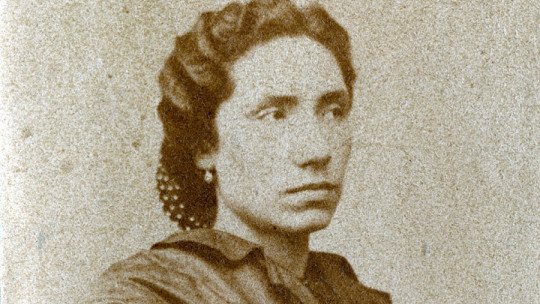
When she was about to die, Rosalía de Castro (1837-1885), the great Galician poet, asked her daughter Alejandra to open the window because she wanted to see the sea. That was her last wish, to once again contemplate the sway of the waves, which meant so much to her and to her work. However, from her house in Padrón, where Rosalía died at only forty-eight years old, you could not see the sea.
The ocean and the feeling of loneliness it inspires are linked to the poetry of this Galician writer, the great voice of the Galician Renaissance, who returned Galician letters to their rightful place in literature. Not only that; Rosalía de Castro was an ardent defender of the homeless and, especially, of women relegated at that time to mere “angels of the home.”
Today we tell you about the life of the Galician writer who inaugurated modern poetry in Galicia and who influenced such important authors as Rubén Darío or Federico García Lorca: Rosalía de Castro.
Brief biography of Rosalía de Castro, the voice of the Galician Renaissance
Not in vain, in 1963, May 17 was established as the Day of Galician Literature in honor of the publication, on that same date but in 1863, of the Galician Songs of Rosalía de Castro. This author, and specifically this work, has been considered as the founder of Rexurdiment, that is, the Galician cultural Renaissance. There is no doubt that Rosalía de Castro is one of the most outstanding voices (if not the most) of this cultural resurgence.
The writer took the Galician language to unsuspected heights and elevated it to a language of culture, putting it on the same level as Spanish and the other languages of the peninsula. On the other hand, her post-romantic style would be one of the starting signals of modern poetry in Spain, characterized by the liberation of the poetic feeling of meter, so important until then.
The illegitimate daughter of a priest
Many biographers agree in stating that Rosalía’s childhood, marked by absence and abandonment, would always be present in her spirit once she was an adult and, of course, would permeate her work with a nostalgia and sadness that is difficult to define.
María Rosalía Rita de Castro came into the world on February 23, 1837, in a dilapidated house in the middle of the road, where her mother, María Teresa da Cruz Castro, had taken refuge to give birth discreetly. And her birth covered her mother’s family (who was a noblewoman) with disgrace for two reasons: first, because Teresa was single; second, because the girl was the fruit of her love affair with a priest, José Martínez Viojo, chaplain of Iria Flavia.
The father did not ignore the little girl, but he could not officially recognize her due to his status as a priest. However, he put Rosalía in the care of two of his sisters who lived in Ordoño, so, at first, the girl did not know who her parents were. In her baptismal certificate it enigmatically indicates “daughter of unknown parents.”
The fate of these “children of unknown parents” was even, but, from the beginning, Teresa Castro refused, perhaps aware of the high mortality rate that existed in these institutions. First she left Rosalía with her godmother, María Francisca Martínez, who was apparently Teresa’s trusted servant. Then, as we have already mentioned, the little girl grew up with her two paternal aunts.
We do not know at what age her mother took care of her; Traditionally it has been noted that it was when Rosalía was about ten years old. However, a document dated 1843 (which was found in 2021), in which Teresa Castro recognizes the girl as her daughter, raises the possibility that her mother took her into her care when Rosalía was six years old. .
After a happiness, always a misfortune
Thus, Teresa decides to go look for her daughter and take care of her. This is a very brave decision, since we take into account that her mother was still single and that this would have caused her a major scandal, as it actually happened. The two move to Santiago de Compostela, where apparently Rosalía is studying at the Liceo de la Juventud.
It is more than likely that the ridicule that the girl received in Santiago, a small provincial city (“Strange, beautiful and ugly city at the same time,” as she herself said), because of her status as a natural daughter, influenced her withdrawn, nervous and pessimistic character. Because Rosalía was, throughout her life, a true “romantic soul.” ; Those who knew her said that, when a happiness of hers came to her life, she always became obsessed with the misfortune that would follow it. Rosalía de Castro, perhaps like all poets, was never able to be completely happy.
However, we should not imagine the writer as a shy and submissive woman. Those who knew her attested to her strong character, which she brought out when things were not to her liking. In fact, Rosalía de Castro was an ardent defender of the most neglected, especially the workers and peasants, whom he portrays very often in his stories. In this sense, the writer is in keeping with the times, since let us remember that in the middle of the 19th century the social novel triumphed.
Rosalía was also a fervent defender of women. In his article Las literatas, published in the Almanac of Galicia in 1866, de Castro composes a fictitious letter to a certain Eduarda, a young woman who wants to be a writer. Using the finest irony, de Castro names each and every one of the things why a woman should not write. What she is doing, in reality, is precisely denouncing all these impediments.
The daughter of the sea
In 1857 Rosalía’s first collection of poems was published in Madrid, titled La Flor. It is written in Spanish and receives praise from Manuel Murguía (1833-1923), a famous critic, Galician like her, whom she already met in the social circles of Santiago. The connection between the two is evident, and the two married the following year, on October 10, 1858.
Murguía always supported Rosalía to publish her writings, but, nevertheless, her conception of the role of women was somewhat contradictory. Although the literary critic was delighted with the talent of his wife, his opinion was that a woman should not make a career out of literature, since the “natural” thing was for her to remain dedicated to the home. This may have been, in a way, what always distanced the couple somewhat, but they remained together until her death.
The year after her wedding, Rosalía’s first novel was published, The daughter of the seawhere the leitmotif of the ocean appears, always present in his life and in his work. The protagonist, Esperanza, is abandoned on the rocks of the beach, and Teresa rescues her from there. The simile is evident with Rosalía’s own childhood, the daughter of “unknown parents,” and it may even be that the character’s name, Teresa, is a clear reference to her mother.
In fact, in the novel, both women are desired and tyrannized by Alberto, Teresa’s husband, who returns after having abandoned her. Although Rosalía’s father did not abandon her (remember that he put her under the protection of her sisters), in reality she never knew him, so we can think that the idea of the father had tragic resonances for the author.
Little by little, Rosalía becomes that “daughter of the sea” in her novel. For many critics, the sea acquires, in Rosalía’s work, the meaning of the maternal womb, where everything begins and ends. The sea is security, but it is also death. In fact, some scholars have detected a clear desire for suicide in the poet’s work, which fits perfectly with her unstable emotional state.
The Galician poetic voice
In 1863 Cantares gallegos appears, an authentic ode to his rural Galicia without forgetting the social denunciation; in this case, towards the situation of the peasants. Rosalía is already a symbol of her homeland, the impulse that Galician literature needed to claim her place.
You fuck newbies (1880) is the author’s other great collection of Galician poems. Much more complex and varied than the Songs, the shadow of a more manifest anguish weighs on this great work of the Galician Renaissance, in which Rosalía wonders about the meaning of existence The author’s pessimism is evident, as well as her desire for liberation from a life that did not satisfy her.
This pessimism (we could say “innate”) of Rosalía was not helped at all by the terrible death of Adriano, one of her sons, due to a fall, when the little one was two years old. The event was a tremendous blow to her mother, who felt unable to write for some time. Finally, in 1885 her last work appeared, On the banks of the Sara collection of poems in Spanish in which he delves even further into what he has already captured in his You fuck newbies.
Rosalía de Castro died on July 15, 1885, as a result of devastating uterine cancer. His last wish was to see the sea ; that sea that called her all her life. Currently, Rosalía de Castro is one of the most important Galician writers, the great voice of the Galician Renaissance.


